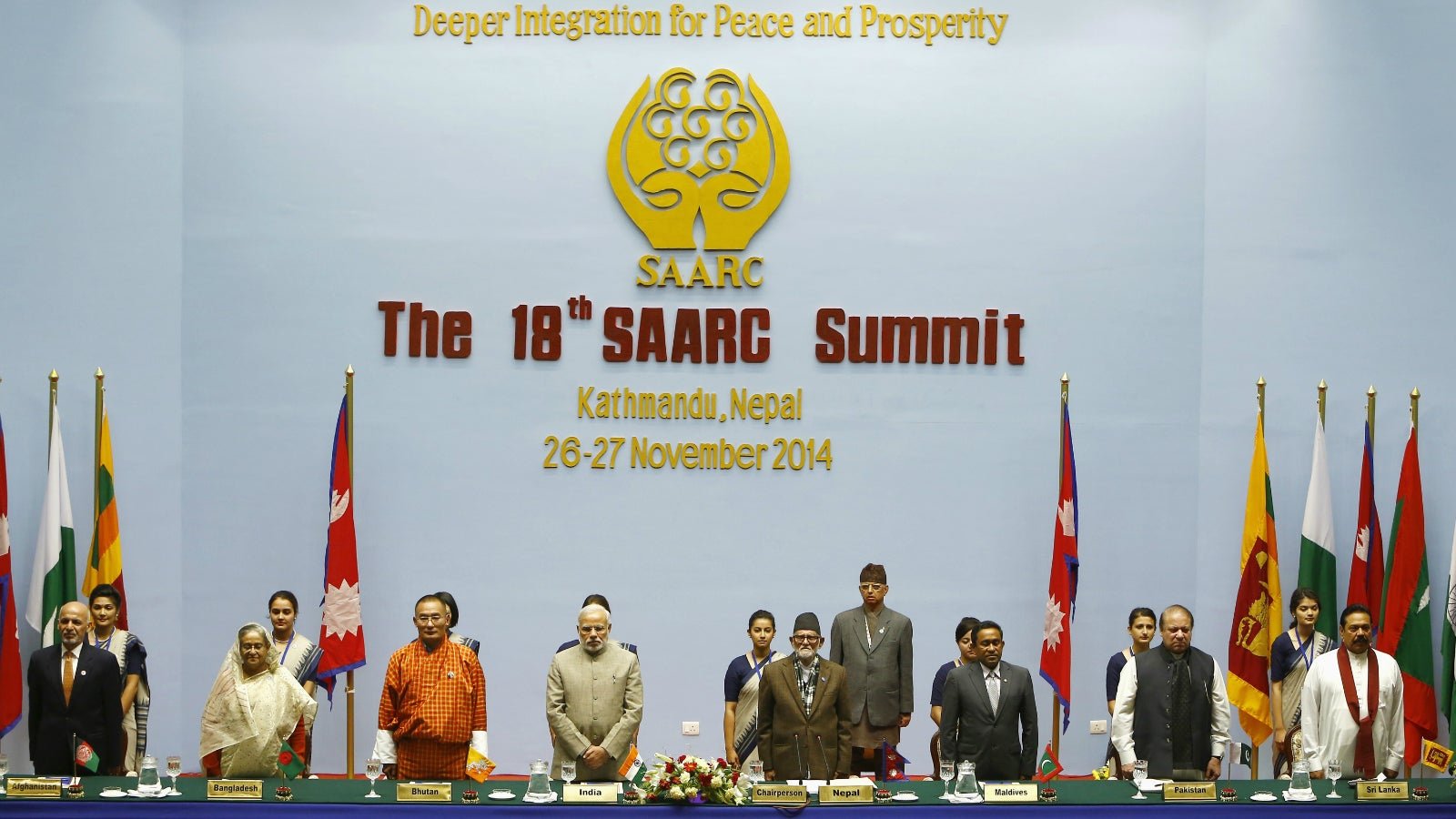With the SAARC boycott, India takes the strongest diplomatic action against Pakistan after Uri
Amid worsening ties with Pakistan, India has decided to boycott a south Asian regional summit to be hosted by its neighbour.


Amid worsening ties with Pakistan, India has decided to boycott a south Asian regional summit to be hosted by its neighbour.
This would be the first time ever that India will not be at such a meeting of the South Asian Association for Regional Cooperation (SAARC), a grouping India helped found 31 years ago.
The summit was scheduled for November in Islamabad, Pakistan’s capital.
SAARC was founded in 1985 by India, Pakistan, Nepal, Bangladesh, Sri Lanka, Bhutan and the Maldives. Since then Afghanistan, too, has joined the body which works towards regional economic cooperation in south Asia.
“India has conveyed to the current chair, Nepal, that increasing cross-border terrorist attacks in the region and growing interference in the internal affairs of member states by one country have created an environment that is not conducive to the successful holding of the 19th SAARC Summit in Islamabad,” India’s external affairs ministry said in a statement on Tuesday (Sept.27).
The move comes at a time when the country has gone on a diplomatic offensive against Pakistan. Over the past few weeks, relations between the two countries have deteriorated following the killing of 18 Indian soldiers by alleged Pakistan-backed terrorists in the town of Uri in India’s Jammu and Kashmir.
The decision to boycott the Islamabad event is perhaps the strongest diplomatic action India has taken till date against Pakistan after the Uri attack.
Yet, even in such a tense atmosphere, it is unprecedented. India had not considered such a move even after the December 2001 attack by alleged Pakistan-backed terrorists on the Indian parliament, which led to a months-long border standoff with Pakistan. India attended the January 2002 SAARC summit in Nepal.
On Tuesday (Sept. 27), shortly after India announced its decision, media reports indicated that Bangladesh, Afghanistan, and Bhutan, too, may boycott the event in Pakistan.
Islamabad, meanwhile, said it was yet to receive any formal word of India’s decision. “While we have not received any official communication in this regard, the Indian announcement is unfortunate,” a spokesperson for Pakistan’s foreign ministry said.
SAARC summits have always been closely watched as they brings the leaders of India and Pakistan to the same table. For instance, at the last round in 2014, much of the attention was focused on Indian prime minister Narendra Modi’s meeting with his Pakistani counterpart, Nawaz Sharif. The two were meeting after the foreign secretary-level talks between the nations were cancelled following a disagreement over Kashmiri separatists.
Over the years, the SAARC grouping has also come under heavy criticism for not having done much for regional trade or, for that matter, even bringing the eight member nations closer.
“… more than three decades since it was formed, SAARC stands on shaky ground, and according to some experts has largely been a ‘somnolent and disappointing body,’ its achievements meagre and unconvincing,” Brookings India wrote in a 2014 briefing.
“Economically, the region is one of the least integrated in the world, with very low levels of intra-regional trade and investment. Intra-regional trade is under 5% of total official trade—less than it was 50 years ago—while intra-regional foreign investments as a proportion of total investment figures are just as paltry,” the report added.